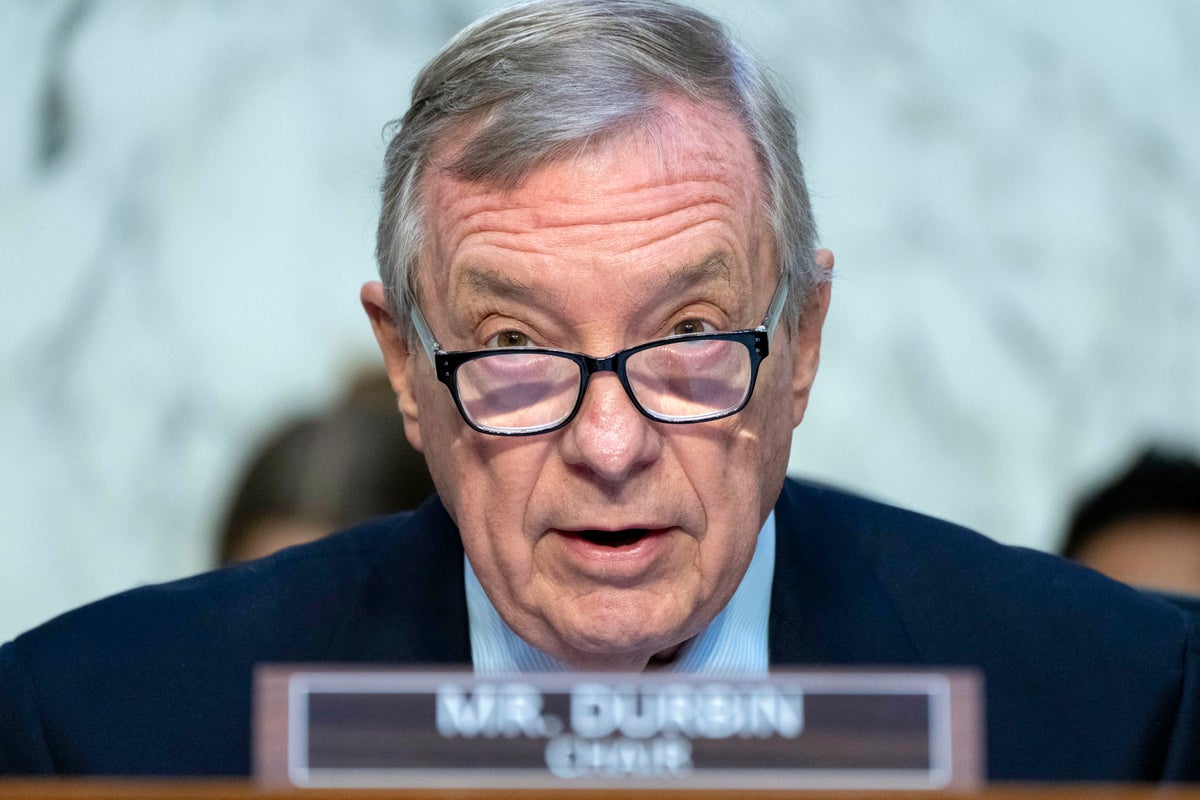
Republican megadonor Harlan Crow and conservative activist Leonard Leo have been subpoenaed by the Senate Judiciary Committee to comply with their investigation into the ethics of the Supreme Court after months of allegations that justices failed to disclose their substantial financial ties.
On Thursday, 11 Democrats, led by Chairman Dick Durbin, voted in favour of issuing the subpoenas after a contentious hearing resulted in nearly all of the Republican members walking out.
Before the vote, committee members bickered about the matter, with Republicans accusing their Democratic colleagues of trying to undermine the court for political gain.
Republicans had managed to delay the committee’s initial voting schedule by introducing 177 amendments, but during Thursday’s meeting, Mr Durbin announced he would not allow votes on the amendments.
Mr Durbin said the subpoenas are being issued because the two wealthy businessmen and donors “stonewalled” or refused to comply with the Committee’s requests as they investigate the ethics of justices.
Over the last year, investigative reports from ProPublica shed light on the alleged lavish gifts and luxury trips that justices accepted but failed to disclose to the public while ruling on critical issues.
Justice Clarence Thomas allegedly accepted extravagant vacations, tuition for a family member and an unusual real estate deal regarding his mother’s home from Mr Crow.
The ties between the two have raised concerns about Justice Thomas’ role in deciding on policy-changing cases.
Supreme Court Justice Clarence Thomas— (AP)
Similarly, Justice Samuel Alito has been accused of failing to recuse himself from a case before the court this term because one of the lawyers in the case recently interviewed Justice Alito in an article for The Wall Street Journal.
Initially, the committee had sought to subpoena Robin Arkley II too but decided to drop the plan earlier this month after the conservative donor “provided information responsive to the Committee’s requests”.
Unlike any other federal position, justices are appointed for life and, until this month, did not have a public code of conduct.
Several members of Congress, mainly Democrats, and the public called for a formal ethics reform of the Court in the wake of allegations. Mr Durbin said the investigation and subpoenas were a direct consequence of “the Supreme Court’s failure” to investigate its justices and craft an ethics policy.
Though the court issued a formal ethics policy earlier this month, it has been subject to criticism because it does not contain a means of enforcement.
Mr Durbin said on Thursday that he does not seek the subpoena authorisation “lightly” but that it was needed “to protect Congress’s authority and advance the committee’s efforts to implement an enforceable code of conduct for the Supreme Court.”
The tense meeting ended in firey exchanges after Mr Durbin’s refused to recognise his Republican colleagues to speak during the judicial nomination portion of the meeting.
Texas Senator John Cornyn accused Mr Durbin of “destroying the United States Senate Judiciary Committee.”







